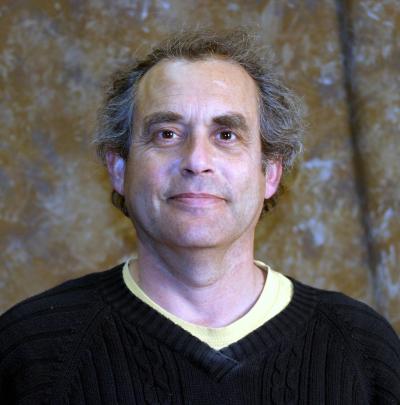Demiurgic Politics: Practical Reason in Political Decision Making

Principal Investigator: Allan Silverman, Department of Philosophy
Plato's Republic is a dialogue, written around 380 B.C., concerning justice, the order and character of the just city-state, and the just man. It is Plato’s best-known work, and one of the world's most influential works of philosophy and political theory, both intellectually and historically.
In this project, Allan Silverman aims to complete a book, Demiurgic Politics, on the ethical and political philosophy of Plato’s Republic, and more generally on Plato’s conception of practical reason. Silverman uses the cosmology of Plato’s Timaeus to help understand the Republic, whose chief concern he takes to be how one can come to live a happy life.
In both the immediate tradition and subsequent scholarship, one main way in which Plato’s conception of happiness is formulated is “becoming like the divine.” Since the best depiction we have of Plato’s conception of the divine is the Demiurge’s creation of the cosmos, an account of the nature and limitations of the Demiurge’s activity should help us to understand the nature and limitations of our effort to become happy.
Thus, a triple analogy guides Silverman’s inquiry: as the Demiurge stands to the cosmos, the philosopher-ruler stands to the state, and the rational soul stands to the happiness of the individual. Noteworthy is that Plato mentions no Form of Happiness, no Form of Soul, no Form of the Polis, nor a Form of the Cosmos.
Among the claims Silverman defends are:
- Plato in the Republic is committed to a version of philosophical anarchism.
- Happiness, in the case of the philosopher, is not scalar; no philosopher can be happier than another, whatever their respective circumstances.
- Plato is not a rational eudaemonist: not all of one’s actions need be for the sake of happiness.
- Everyone, in virtue of the metaphysics of the (rational) soul (especially per the Timaeus), is capable of being a philosopher.
- Just as Necessity (anangke) prevents the Demiurge (Nous) from imposing perfect order on the dynamic matter of the cosmos, analogously ignorance prevents the philosopher-ruler from making all dynamic souls into philosophers.
- Plato, unlike Aristotle, does not distinguish theoretical from practical reason.
Accepting that the paradigm for both the ruler and individual is the Demiurge who, being all good and ungrudging, creates the best cosmos that can be made (Timaeus 29), the philosopher does not seek to flee this world but rather to descend to create as much good as possible by trying to make all into philosophers.
A deeper understanding of Plato’s Republic, which has so deeply shaped modern democracies, contributes to the ideas, identities and decisional processes that affect security. A grant from the Mershon Center helped Silverman obtain a course release in order to finish the book.
Investigators
Filters: 2016-2017, Philosophy
